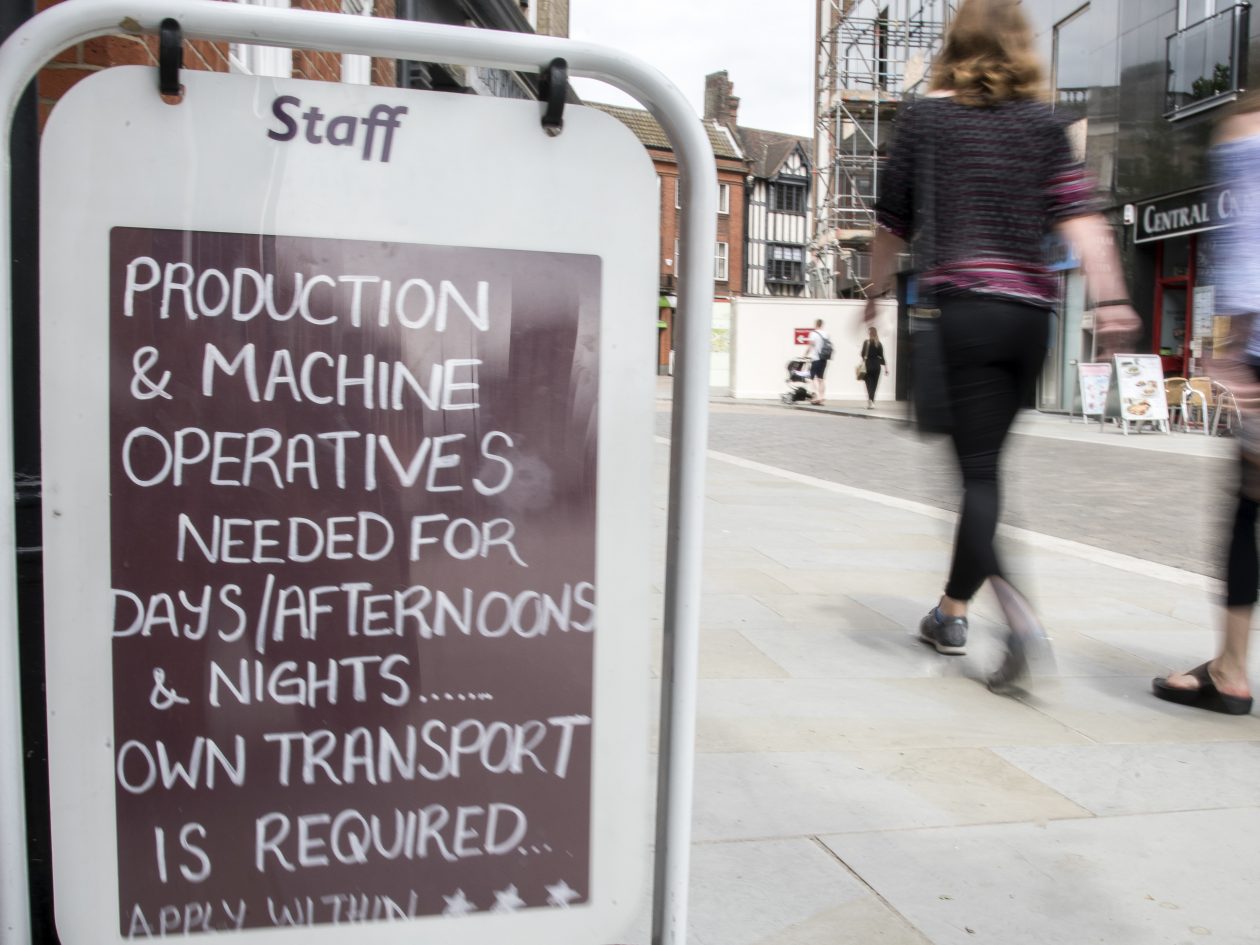A new report Gender and Unemployment for the What Works Centre for Wellbeing has found that on average, women’s life satisfaction is less affected by unemployment, compared to men.
Men show a greater drop in life satisfaction when they become unemployed.
But this average gap conceals a range of different experiences. Not all women suffer less than men when they lose their job. This analysis explains some of the differences, showing how values and attitudes influence the experience of job loss.
The report draws on data from Understanding Society and is co-authored by Dr Alita Nandi from the Institute for Social and Economic Research at the University of Essex, with colleagues from the Universities of Reading, Sheffield and East Anglia.
Women with egalitarian attitudes suffer more when unemployed.
Findings from Understanding Society show that women are more likely to be impacted by job loss – after accounting for loss of income – when they have egalitarian attitudes. This is measured by how strongly individuals agree with statements such as: ‘both partners should contribute to the household income’ and ‘employees should help mothers combine jobs and childcare’; and disagree with statements such as ‘a husband’s job is to earn money; a wife’s job is to look after the home and family’. Women with egalitarian attitudes suffer more, on average, than men who lose their jobs.
On the flip side, the survey shows that women with traditional attitudes (those at the other end of the attitude scale) are likely to fare better if unemployed. These findings are only looking at the additional impact of losing their job, after researchers have already accounted for the impact due to loss of income.
Clearly, for women who have egalitarian attitudes and choose to go into work, employment has an added value, beyond income alone.
As a result, loss of employment is damaging. For those with traditional attitudes, there may be tensions between employment and their attitudes around gender roles and the family, therefore, loss of employment may not pose a negative impact beyond the loss of income. There is little evidence that gender attitudes influence the experience of job loss for men. In the next few years there will be the opportunity for interesting work exploring whether gender differences extend to other forms of non-employment through the differential impacts of shared parental leave.
How does work identity fit in?
Findings from Understanding Society also show that life satisfaction is higher for those in continued employment who have a strong work identity.
Researchers measure work identity using the responses to the question “How important is your profession to your sense of who you are?”. Interestingly, men with strong work identity cope better with job loss. The study did not find any (statistically significant) difference in coping with job loss between women with strong and weak work identities.
Other factors – such as type of job, hours of work or commute – influence levels of life satisfaction, but do not influence the impact job loss has on people.
Gender and Unemployment by Alita Nandi, University of Essex, Mark Bryan, University of Sheffield, Simonetta Longhi, University of Reading, Sara Connolly and Cigdem Gedikli, University of East Anglia, is published by the What Works Centre for Wellbeing (October 2017)
